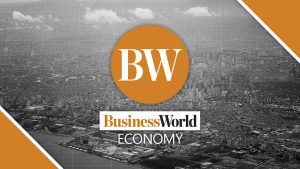THE tariffs imposed on imported high-density polyethylene (HDPE), a raw material in plastics manufacturing, need to be reviewed because they hinder manufacturer competitiveness, an industry official said.
Danny Ngo, a former plastics industry association president and member of the Philippine Chamber of Commerce and Industry, said: “The tariff directly increases the cost of HDPE for Philippine manufacturers, making their products less competitive in both domestic and international markets.”
“This price hike is passed on to consumers, ultimately impacting their purchasing power and overall economic well-being,” he added via Viber.
The Tariff Commission has recommended that the Department of Trade and Industry (DTI) maintain or modify the safeguard measures on HDPE pellets and granules.
In 2022, the DTI imposed three years of safeguard duties on imports of HDPE pellets and granules to protect the domestic industry.
A safeguard duty of P1,271 was imposed on each metric ton of imported HDPE pellets and granules. The current most favored nation rate on HDPEs is 10%.
Mr. Ngo said safeguard duties on HDPEs are a “self-inflicted wound” hindering economic growth and global competitiveness.
“This policy is not only detrimental to the domestic plastics industry but also puts the Philippines at a significant disadvantage compared to its Asian, ASEAN, and other neighbors,” he added.
In particular, he said that the tariff makes it harder for manufacturers to compete with counterparts in countries that charge zero or lower tariffs on HDPEs, such as China, Vietnam, and India.
“They benefit from lower production costs, access to raw materials, and government support. The tariff only widens the gap between the Philippines and these established players,” he said.
“This leads to a loss of market share… putting jobs and livelihoods at risk,” he added.
If it continues, he said Thailand, Malaysia, and Indonesia will gain a competitive edge as their tariff-free access to HDPE will allow them to expand their exports and attract investment.
“The tariff can lead to supply chain disruptions, as manufacturers struggle to source affordable HDPE. This can result in production delays, higher costs, and ultimately, a decline in overall output,” he added.
According to Mr. Ngo, the government should instead gradually reduce the tariff on HDPEs, improve transportation and logistics infrastructure, invest in skill development, streamline customs procedures, and attract foreign investment.
“It is time for the government to reconsider this policy and adopt a more strategic approach that promotes free trade, regional integration, and the competitiveness of the Philippine plastics industry,” he said. — Justine Irish D. Tabile

